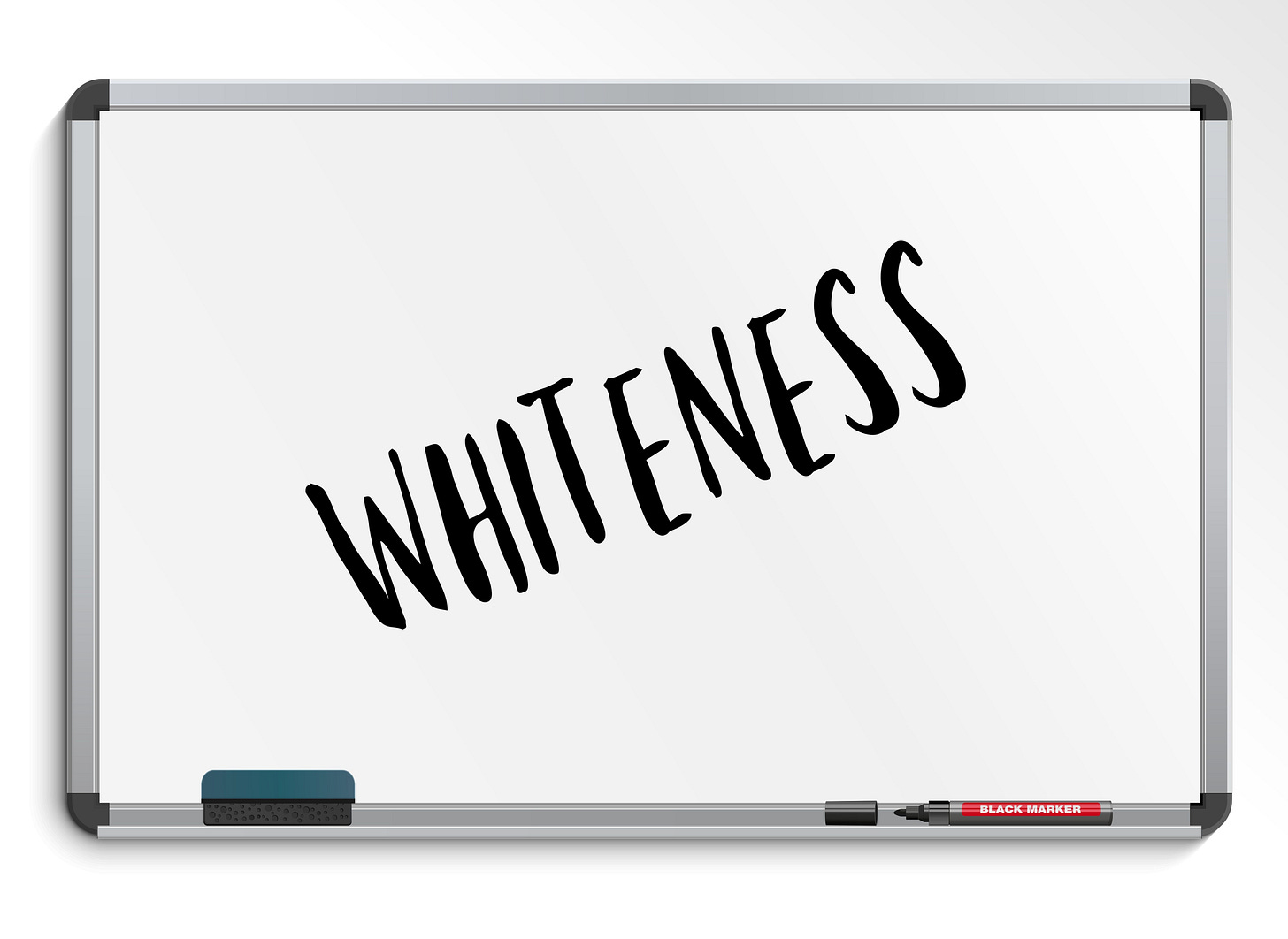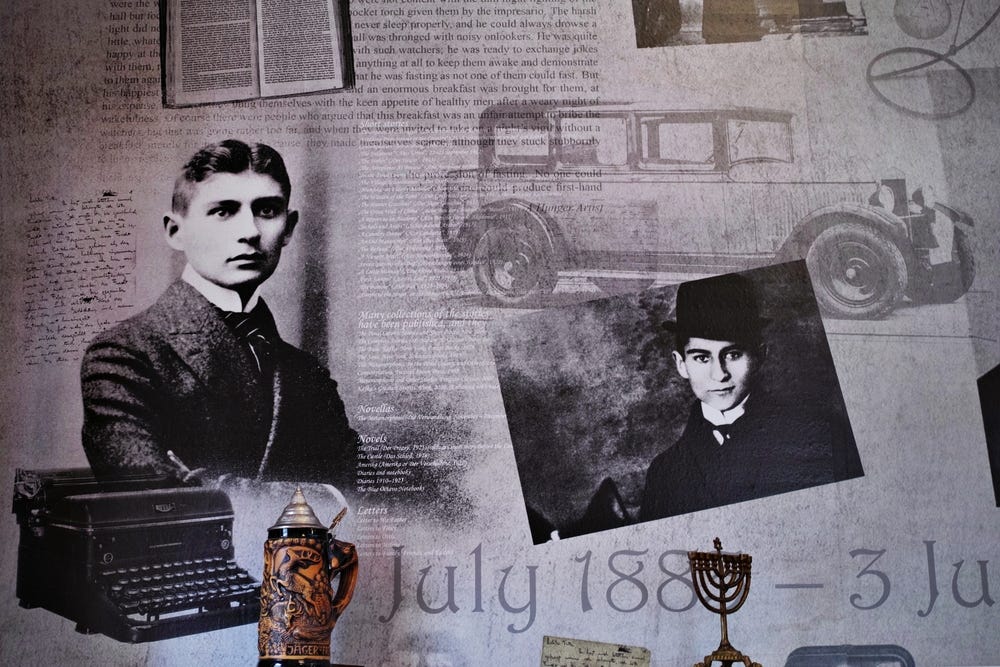E-Pluribus | May 10, 2023
Politicizing physics; Ohio Northern University goes full Kafka; and the juice is still worth the squeeze.
A round-up of the latest and best writing and musings on the rise of illiberalism in the public discourse:
Lawrence M. Krauss: The Unbearable Whiteness of Being
Though most people probably remember little from high school physics, if they even had to take it, they’d probably assume physics doesn’t have anything to do with race. But these days, they’d be wrong. At Quillette, Lawrence Krauss writes about a bizarre episode regarding a (scholarly?) article on “whiteness in introductory physics” and the aftermath.
A little over a year ago…, a ludicrous article [was] published in the prestigious physics journal Physics Education Review (a Physical Review journal) titled “Observing whiteness in introductory physics: A case study” (Phys. Rev. Phys. Educ. Res. 18, 010119 (2022)). The article claimed, among other things, that the use of whiteboards was an example of “whiteness” in physics.
[ . . . ]
[T]he paper generated a reasonably large negative outcry from the physics community, so much so that the journal Physical Review Physics Education Research (PRPER) felt the need to publish an editorial defending the article, arguing that “advancing equity is critical for physics.” In response to the current of negative responses, they added, “The Physical Review invites constructive and respectful criticism of published articles in the form of Comments.” (Comments are short articles published in the journal that respond to previously published articles.)
[ . . . ]
Shortly after that, several physicists wrote to the authors of the APSNews piece, including the then APS president, Frances Hellman, expressing concerns about its tone, which seemed to suggest that any discussion of the paper on social media would be interpreted as harassment, and questioning whether a Comment in PRPER was an appropriate forum for fully discussing the paper. Their objection notwithstanding, the APS president nevertheless urged them to submit an article to Physical Review for publication as a Comment, which they then agreed to do. But what eventuated is like something out of Joseph Heller’s novel Catch-22.
[ . . . ]
In a masterstroke of suppression of speech, the American Physical Society and Physical Review have together devised a strategy to ensure negative comments about this paper cannot appear officially anywhere in print. The American Physical Society decided that The Back Page was not an appropriate place to write a critique, because only scientific critiques were deemed sufficiently respectful, and those should be published as Comments in Physical Review. Physical Review, in turn, decided that a scientific critique of the paper was not appropriate for publication because the original paper wasn’t scientific.
Read the whole thing.
Scott Gerber: DEI Brings Kafka to My Law School
While Franz Kafka may be best known for “The Metamorphosis,” Ohio Northern University (ONU) may inadvertently give “The Trial,” another of Kafka’s works, a boost. At the Wall Street Journal, ONU law professor Mr. Gerber relates his surreal experiences that parallel those of the protagonist in “The Trial.”
The same week I was led out of my classroom by police and campus security, I published an op-ed defending Justice Clarence Thomas’s right to have friends—even rich ones. The week before that, I gave a TV interview in which I criticized DEI programs that discriminate against white men in the name of “racial and social justice” and for being indifferent to the type of diversity higher education should value most: viewpoint diversity. The week prior, I published op-eds in a national newspaper and an Ohio one making the same points.
[ . . . ]
Perhaps decency is a sacrifice ONU is willing to make to grease the wheels of the DEI agenda. It looks like the law is, too. As my Academic Freedom Alliance-provided lawyer informed ONU, the attempt on April 14 to intimidate me into signing the release of claims with only a week’s notice is an unambiguous violation of federal age-discrimination law, which requires that workers over 40 be given a minimum of 21 days to consider such offers. I’m 62.
Moreover, insufficient “collegiality” isn’t listed as adequate cause in ONU’s faculty handbook for dismissing a tenured faculty member. The American Association of University Professors notified ONU in an April 19 letter, and again on May 2, that “an absence of collegiality ought never, by itself, constitute a basis for nonreappointment, denial of tenure, or dismissal for cause.” The university president informed AAUP that “ONU will not be providing a response.”
Read it all here.
Wenyuan Wu: The Juice is Worth the Squeeze
When Tirien Steinbach, Stanford’s associate dean for Diversity, Equity and Inclusion, asked the question “Is the juice worth the squeeze?” of federal judge Kyle Duncan at Stanford Law School back in March, her implied answer was “no.” At Minding the Campus, Wenyuan Wu makes the case that, especially given the apparent mindset of many students today, the squeeze is not optional.
At a time when 63% of college and university students think that it’s at least “somewhat acceptable” to shout down a speaker, many academic administrators, and even faculty members, are emboldened to erode freedom of expression under the banner of diversity, equity, and inclusion (DEI).
[ . . . ]
Alas, the California Community Colleges (CCC)—America’s largest system of higher education, which oversees 116 community colleges throughout the Golden State—is joining the onslaught on free speech. In 2022, the CCC Board of Governors adopted a new regulation to incorporate diversity, equity, inclusion, and accessibility (DEIA) criteria in the evaluation and tenure review of all faculty members.
[ . . . ]
[T]he ASCCC also approved its “Resolution in Support of Academic Freedom/Solidarity with Faculty Across the Nation” (13.04 S23). Hiding behind the pretext of supporting academic freedom as an “indispensable requisite for unfettered teaching and research in institutions of higher education,” the resolution goes on to reveal its true intention: to condemn legislation and policies that restrict the inculcation of “Critical Race Theory and racial and social justice,” not only at the collegiate level but also in K–12 education. For the Academic Senate, attempts by independent school boards and conservative lawmakers to curtail the proliferation of CRT through race-essentialist and race-divisive teaching are attacks on DEIA, anti-racism, and free speech.
Apparently, the ASCCC thinks that a refusal to endorse the political edict of DEI isn’t protected by academic freedom. Rather, it can be construed as a weaponization of academic freedom to “create educational or work environments hostile to protected classes or DEIA.” By the same token, what would happen to a professor who insists on teaching American history as an upward trajectory of hope and progress instead of a struggle-centered journey of colonialism? He may very well be subject to regulatory scrutiny for abusing academic freedom to harm marginalized people and undermine the cause of DEIA and anti-racism.
Read it all.
Around Twitter
America First Legal, a nonprofit run by former Trump official Stephen Miller, has some disturbing documents out of the Department of Homeland Security. Below is a portion of a longer thread:
Last May, New York passed a law that opened a one-year window that does away with the statute of limitations for civil claims on long-past sexual offenses, which allowed the suit Donald Trump lost just this week. Ben Dreyfus and Megan McArdle, no Trump defenders, have concerns:
And finally, via Jonathan Kay, there’s woke, and then there’s woker!










